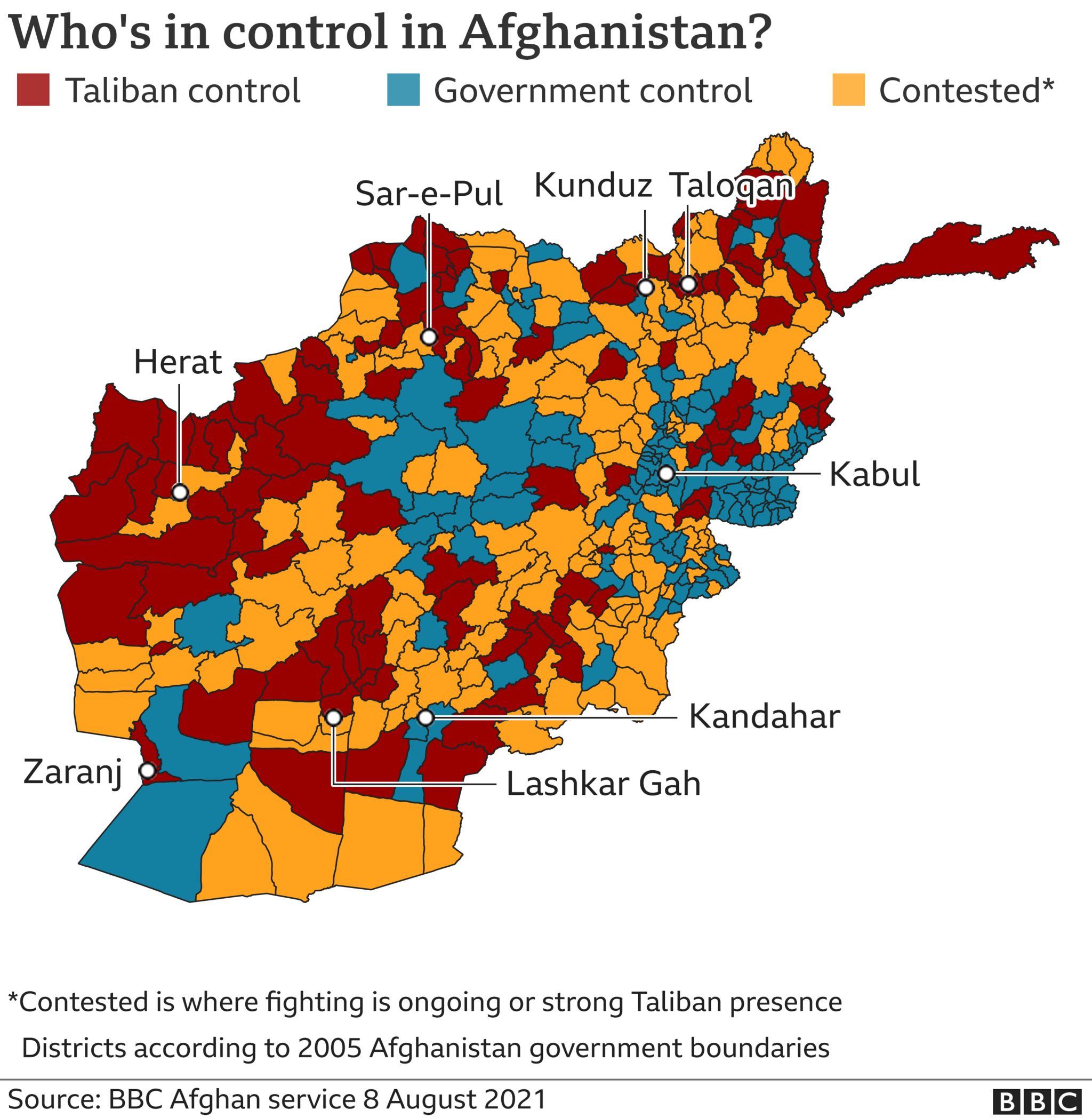The Taliban have rejected international calls for a ceasefire in Afghanistan, as they push for new territory.
They are reported to have overrun the key northern city of Kunduz, as well as Sar-e-Pul and Taloqan. Fierce fighting continues in two more northern cities.
Five regional capitals have fallen to the militants since Friday, with Kunduz their most important gain this year.
US and Afghan planes have carried out airstrikes on the militants. Afghan officials say dozens of Taliban died.
However, a spokesman for the Taliban warned against further US intervention while speaking to Al Jazeera TV on Sunday.
Violence has escalated across Afghanistan after US and other international forces began to withdraw their troops from the country, following 20 years of military operations.
Taliban militants have made rapid advances in recent weeks. Having captured large swathes of the countryside, they are now targeting key towns and cities.
The three northern cities fell to Taliban control within hours of each other on Sunday, with one resident in Kunduz describing the situation as “total chaos”.
Videos posted on social media showed Taliban fighters inside government buildings in Kunduz and Sar-e-Pul, though they cannot be independently verified.
The Afghan government, meanwhile, said special forces were still fighting inside Kunduz.
A Taliban spokesman told the BBC they were now targeting Pul-e-Khumri, the capital of Baghlan province.
Heavy fighting has been reported in the city, as well as in Mazar-e-Sharif, a trading hub on the border with Uzbekistan.
On Monday morning a loud explosion was heard outside the police headquarters in the southern city of Lashkar Gah.
Residents there said about 20 civilians had been killed in the past two days, and a school and a clinic destroyed in the fighting.

The importance of Kunduz
The seizure of Kunduz is the most significant gain for the Taliban since they launched their offensive in May. The city of 270,000 people is considered a gateway to the country’s mineral-rich northern provinces.
And its location makes it strategically important as there are highways connecting Kunduz to other major cities, including Kabul, and the province shares a border with Tajikistan.
That border is used for the smuggling of Afghan opium and heroin to Central Asia, which then finds its way to Europe. Controlling Kunduz means controlling one of the most important drug smuggling routes in the region.
It also holds symbolic significance for the Taliban because it was a key northern stronghold before 2001. The militants captured the city in 2015 and again in 2016 but have never been able to hold it for long.



